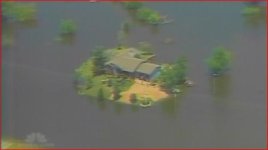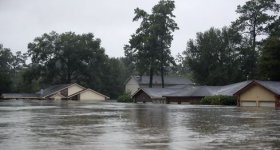Wetland loss could cost Michiganders billions in flood damage, according to new report
After the loss of key federal wetlands protections in 2023, scientists are warning the damage this change could bring to wetlands would also bring billions of dollars of flood damage with it.
According to a report from the Union of Concerned Scientists, there are 30 million acres of wetlands across the upper Midwestern United States providing crucial flood prevention benefits, whose loss could potentially cost the region more than $22 billion annually.
Among the eight states in the study — Illinois, Iowa, Michigan, Minnesota, Nebraska, North Dakota, South Dakota and Wisconsin – Michigan holds 6.4 million acres of wetlands, meaning the state could lose $4.77 billion in annual flood mitigation benefits due to threats from pollution and industrial agriculture.
While speaking with the Michigan Advance, Stacy Woods, the research director for the Union’s Food and Environment Program and author of the report, explained that Michigan holds almost 9.5 million acres used for agriculture, compared to the 6.4 million acres of wetlands. However, the Supreme Court’s decision in Sackett v. U.S. Environmental Protection Agency (EPA) has drastically changed how the federal Clean Water Act can be used to protect wetlands from being drained or polluted by industrial farming and other industries, Woods said.
Under the court’s 5-4 ruling, the Clean Water Act only applies to wetlands with a continuous connection to the waters of the United States, with the Court narrowing this definition to include “only those relatively permanent, standing, or continuously flowing bodies of water” such as streams, oceans, rivers and lakes.
“We’ve known for a long time that wetlands prevent flooding. Like the trees and the plants trap and slow down rushing water, and wetland soil also acts as like a sponge, it can soak up vast amounts of water. So communities really benefit greatly when wetlands are there because they serve as these natural flood barriers,” Woods said.
However, industrial agriculture alongside other industries can threaten these bodies, draining them to convert into cropland, or damaging them with ....
After the loss of key federal wetlands protections in 2023, scientists are warning the damage this change could bring to wetlands would also bring billions of dollars of flood damage with it. According to a report from the Union of Concerned Scientists, there are 30 million acres of wetlands...

michiganadvance.com







